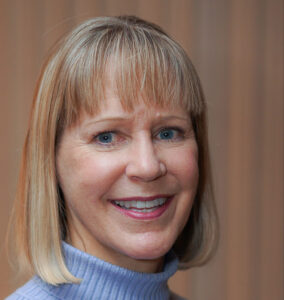This fall, MSP will offer a new Certificate in Applied Behavioral Analysis that will prepare students to become Board Certified Behavior Analysts (BCBA). Dr. Ruth Anan, PhD, LP, BCBA-D, has created a Behavioral Analyst Certification Board® (BACB®) approved academic program specifically for MSP that will combine the essential skills and training of behavioral analysis with a person centered philosophy.
What inspired you to become a trained Behavior Analyst?
I worked as a licensed psychologist with children at Beaumont Hospital for 15 years. Many of the young children I saw were autistic. I had to deliver bad news to families and I was not able to give good treatment options.
I knew that early intensive behavioral therapy is the best treatment option for kids. But at that time, the closest provider was The Cleveland Clinic. I worked to create an Autism treatment program at Beaumont and become inspired to train as a BCBA.
It was a humbling experience going back to school. I knew a little about behavioral analysis, but there was a lot of information that, as a trained psychologist, I had never learned.
What is the role of a BCBA?
The experience of working as an analyst is definitely a different model of treatment. Treatment can be as many as 30 hours per week with each child. The analyst may see a child 3 hours per week and then will train and oversee a BCBA technician to implement the treatment plan.
Another benefit of the BCBA model is that the child has the opportunity to work with several different people during treatment. It is ideal for the child to take directives from multiple sources.
Behavior analysts pride themselves on individualizing treatment plans for each child. First, a thorough assessment is done to identify strengths and weaknesses. Second, the analyst’s job is to design the treatment program for a child and then train the technicians. Analysts use data to drive treatment planning – 90% of the time, treatment is done by someone else, so data is very important in order to make changes or to adjust the treatment plan.
The behavioral plan address both deficits and behavior problems. Treatment goals may include improving adaptive, communication, or social skills. The behavior technicians work closely with the analyst to provide constant feedback on the child’s progress.
Why is BCBA training a good fit for MSP?
Our program at MSP will help create a substantial supply of BCBA analysts to meet growing demand. MSP wants to train empathic behavior analysts who have a good balance between technical skills and warmth and empathy.
Incoming students will need to demonstrate some previous experience working with children with autism or with clients with developmental disabilities. And students need a good understanding of what they are getting into – the BCBA program is a large amount of information to learn.
After completing the program and passing the exam, BCBA can work as independent clinicians who at this time require no supervision and can bill directly with insurance companies.
 Dr. Anan is both a licensed psychologist and board certified behavior analyst who joined the faculty of MSP in 2017. Dr. Anan served for 15 years as the Director of the Early Childhood Program at William Beaumont Hospital’s Center for Human Development where she conducted diagnostic assessments for children with a myriad of developmental, behavioral and emotional challenges. In order to offer behavior analytic treatment to children with autism spectrum disorders, Dr. Anan established Beaumont’s HOPE Center. Dr. Anan also provided pediatric psychology services to Beaumont’s cranio-facial and hematology-oncology medical teams. She was on the bio-medical staff at Beaumont, Royal Oak and was appointed Associate Professor at Oakland University-Beaumont Hospital School of Medicine.
Dr. Anan is both a licensed psychologist and board certified behavior analyst who joined the faculty of MSP in 2017. Dr. Anan served for 15 years as the Director of the Early Childhood Program at William Beaumont Hospital’s Center for Human Development where she conducted diagnostic assessments for children with a myriad of developmental, behavioral and emotional challenges. In order to offer behavior analytic treatment to children with autism spectrum disorders, Dr. Anan established Beaumont’s HOPE Center. Dr. Anan also provided pediatric psychology services to Beaumont’s cranio-facial and hematology-oncology medical teams. She was on the bio-medical staff at Beaumont, Royal Oak and was appointed Associate Professor at Oakland University-Beaumont Hospital School of Medicine.